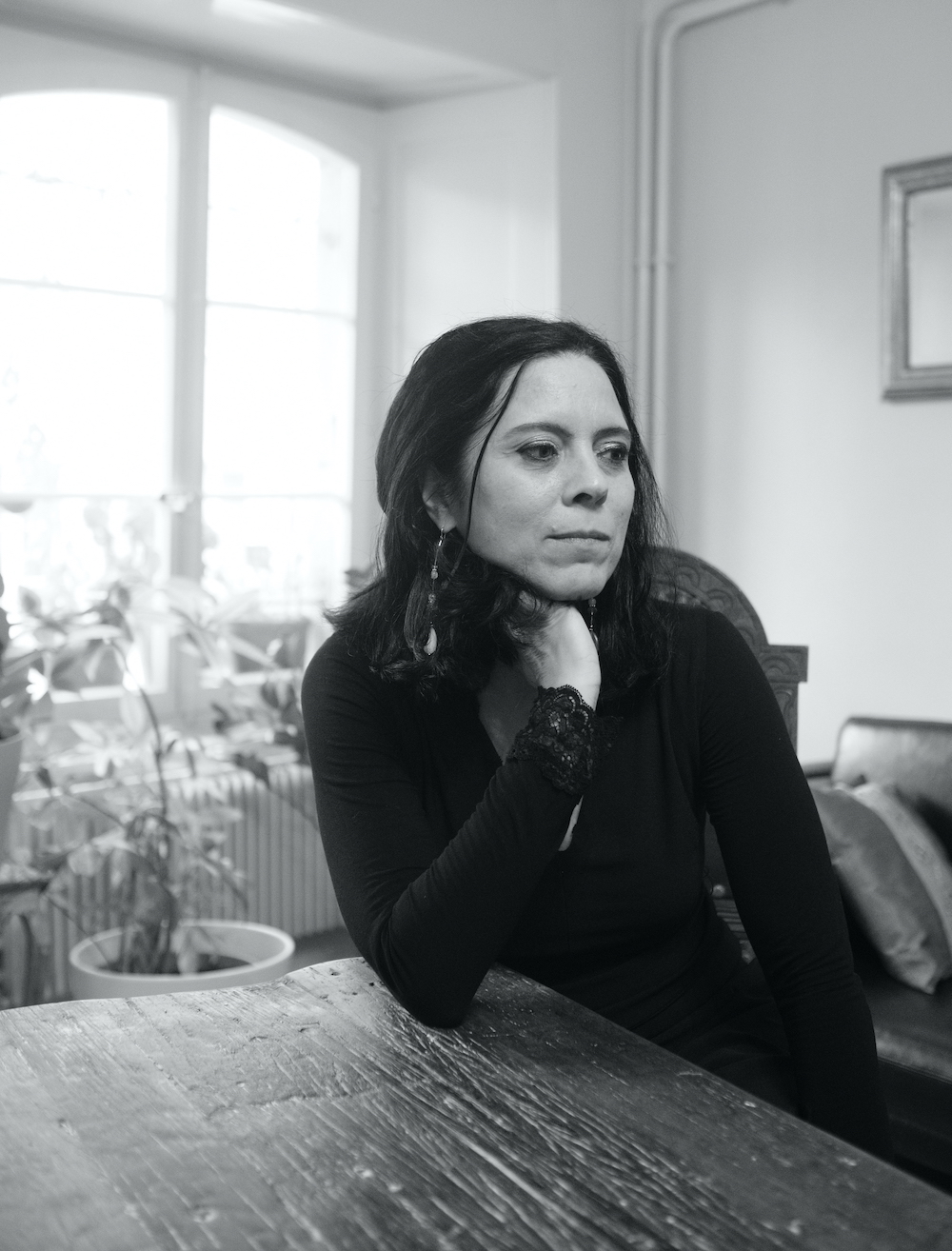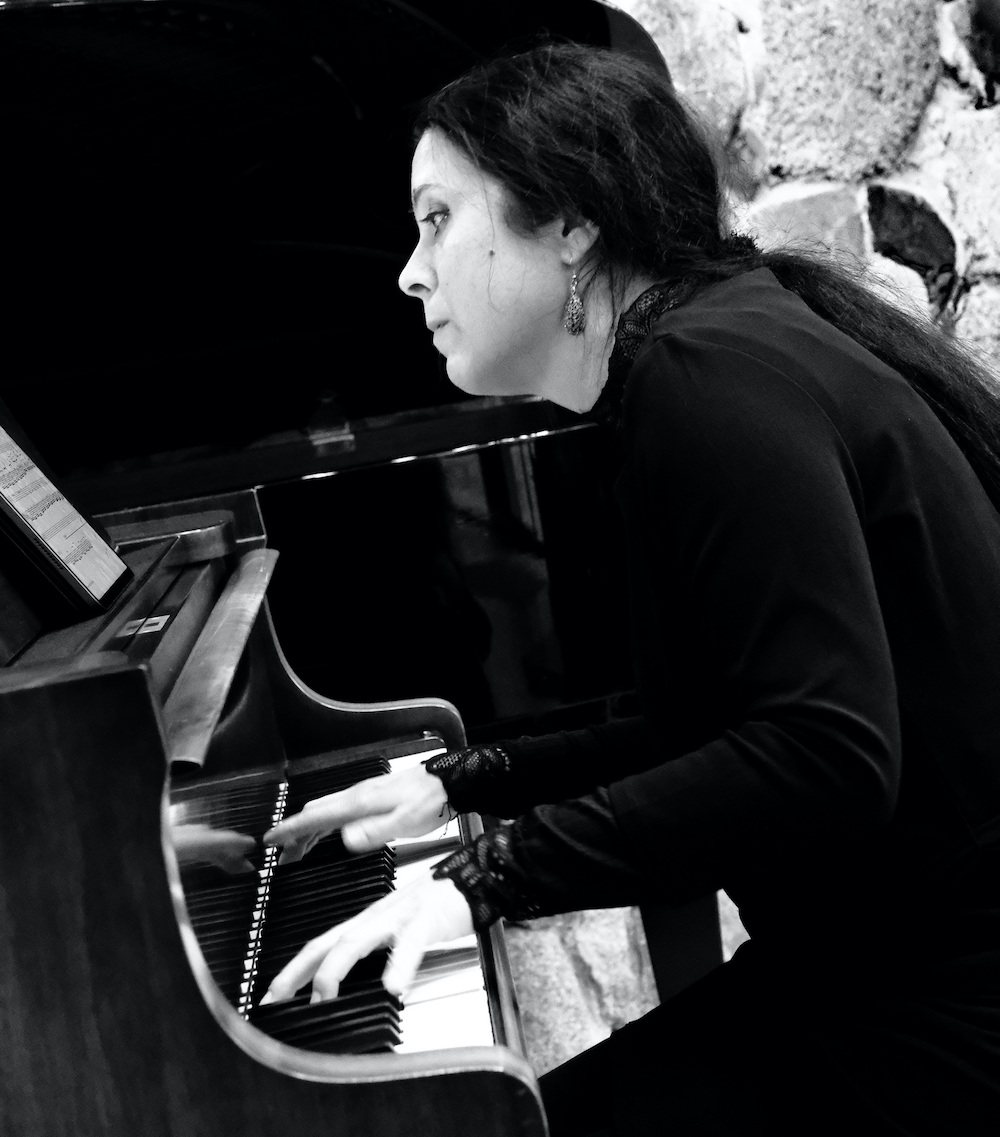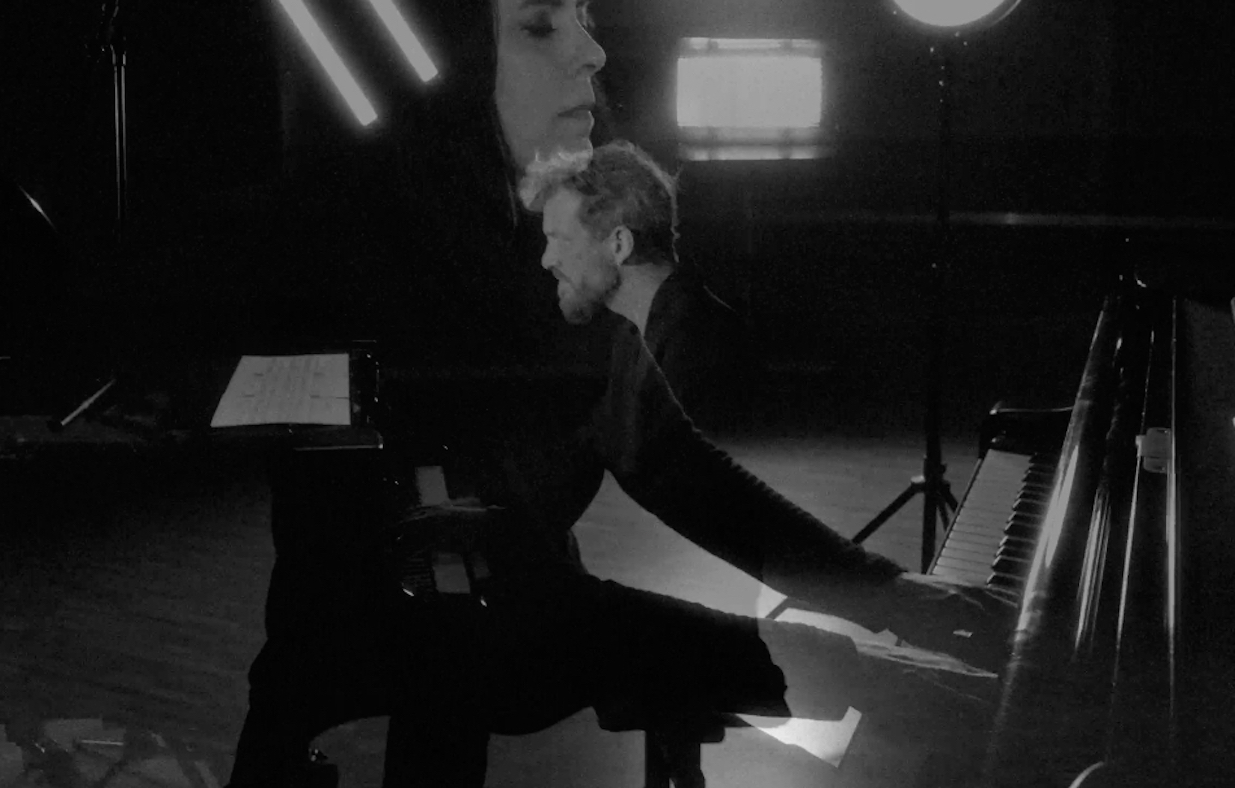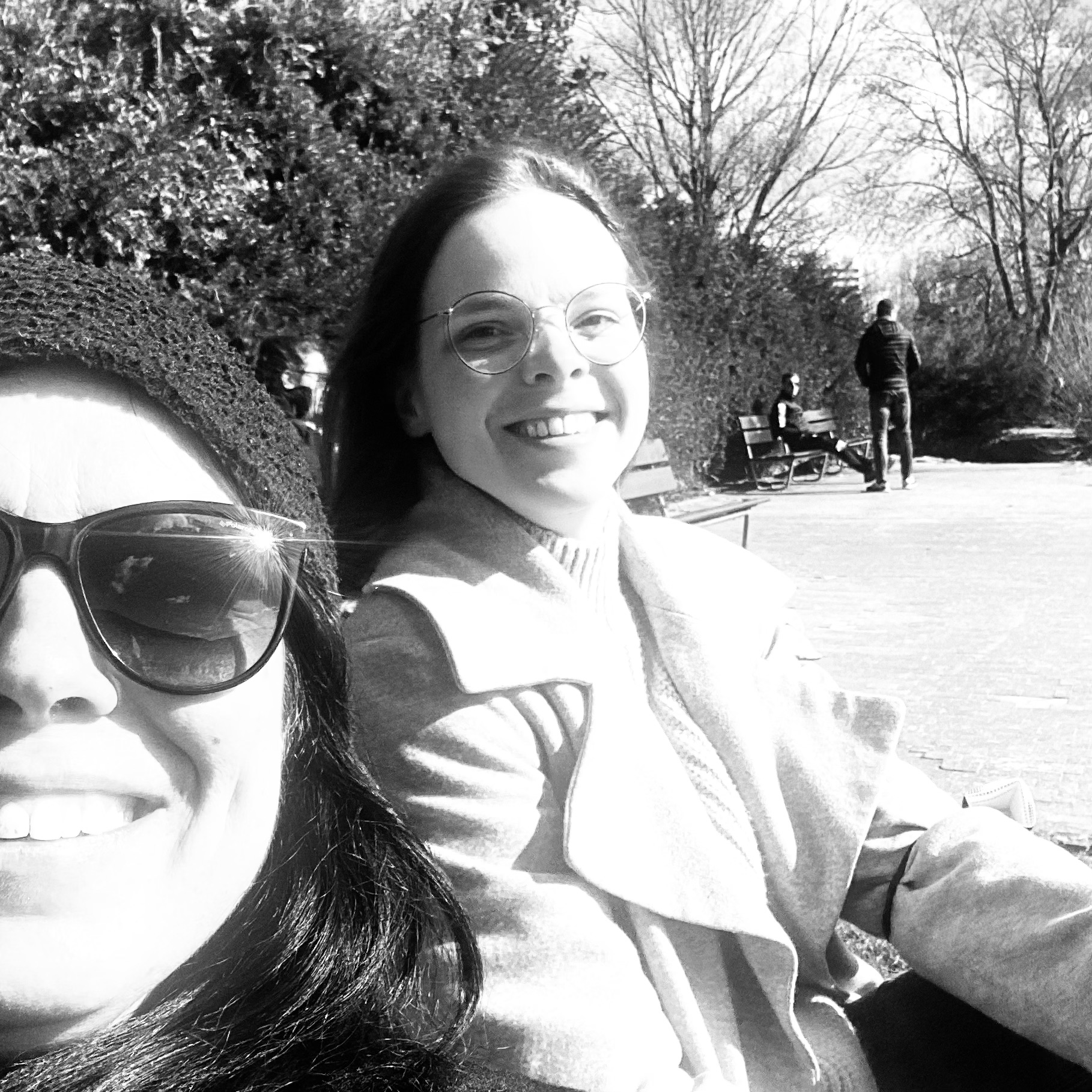Die Bieler Pianistin Judith Wegmann geht der musikalischen Zeit auf den Grund. So tief, dass sie fast aufhört, zu existieren. Ob in Werken von Morton Feldman, in eigenen Improvisationen oder einer regen Ensemble-Tätigkeit: Für Judith Wegmann sollte man sich Zeit nehmen.

Friedemann Dupelius
„Ich habe früher nie etwas eingespielt, sondern mich immer ganz dem Live-Moment hingegeben“, erzählt die Musikerin, die im Kanton Zug geboren ist und in Biel lebt. „Das veränderte sich 2016, als ich über mehrere Wochen im Krankenhaus war und daher über Monate nicht Klavier spielen konnte. Die Musik als täglicher Lebensinhalt, als meine Sprache fehlte mir sehr.“ Als Musikerin, die sonst täglich die Beziehung zu ihrem Instrument pflegt, muss sich dieses halbe Jahr schier endlos angefühlt haben. „So entwickelte ich eine Strategie, um mich trotzdem mit Musik beschäftigen zu können und meine Gedanken in eine positive Richtung zu leiten und entwarf innerlich Konzepte für mein Album Le souffle du temps. Als ich nach Monaten endlich wieder in mein Atelier gehen konnte, habe ich mich gleich mehrere Wochen zurückgezogen, um das Album zu realisieren. Ohne viel Vorerfahrung habe ich selbst eingespielt und gemischt.“
In Ihrer Improvisation Reflexion IV aus dem Jahr 2019 spinnt Judith Wegmann Ihr Projekt Le souffle du temps als Eigenkomposition aus dem Moment weiter.
Bereits in den Jahren zuvor hatte sich Judith Wegmann intensiv mit der Zeit in der Musik beschäftigt. Seit über zehn Jahren ist das ein Schwerpunkt ihres Schaffens. Musik ist Zeitkunst, wir wissen das alle. Wegmanns chronopoetische Tiefenbohrung führt sie jedoch auf eine Weise zum Kern dieser einfachen Wahrheit – bis dorthin, wo Zeit aufhört, gemessene Zeit, strenge Taktung zu sein
„Ich habe begonnen, sehr lange Konzerte zu spielen – zwei Stunden im Schnitt. Mir ist es wichtig, einen Kosmos für das Publikum und für mich zu schaffen, in dem man für einen Moment entschleunigen und das Drumherum vergessen kann.“ Das Tempo im Zeitalter der sozialen Medien ist hoch. Konzerte können für Wegmann ein ruhiger Gegenpol dazu sein.
Der Atem der Zeit
Judith Wegmann ist ein Nachtmensch. Ab Nachmittag wird sie aktiv und verbringt ganze Abende und Nächte am Flügel spielend im Atelier. „Das ist für mich seelischer Balsam – Erholung und Entschleunigung. Das Studio liegt im 2. Untergeschoss, dort gibt es keinen Empfang, man kann mich nicht erreichen. Wenn ich spiele, denke ich nicht mehr.“

Zeitdehnung und Entschleunigung sind das eine prägende Element im Schaffen der Bielerin – zwischenmenschliche Beziehungen das andere, nicht minder wichtige. Mit dem Projekt Réflexion ging Le souffle du temps in die zweite Runde. Sie bat Komponist:innen, die sie persönlich schätzt, auf die Musik zu reagieren. Da ist zum Beispiel Edu Haubensak, den Judith Wegmann hoch schätzt.
Edu Haubensak hat mit Manga eine Réflexion (2019) für Judith Wegmann geschrieben. Die Kollaboration der beiden wird 2024 weitergehen.
Und es wurde auch ein generationenübergreifendes Projekt. Der 86-jährige Daniel Andres ist nicht nur Wegmanns Nachbar in Biel, „sondern auch ein wunderbarer und inspiererender Komponist. Ich habe ein Bauchgefühl dafür, mit wem ich gut zusammenarbeiten kann. Das täuscht mich fast nie. Es braucht einfach eine gemeinsame Ebene im Grundverständnis vom Leben, so individuell auch alle Menschen sind.“
Auch Daniel Andres’ Zyklus: Souvenir d’un instant entstand als Reaktion auf Le souffle du temps von Judith Wegmann.
Morton Feldman konnte Judith Wegmann nie kennen lernen. Es ist also eine abstrakte Beziehung, die sich ausschliesslich aus der von Feldman hinterlassenen Musik speist. Auch hier zentral: Die Zeit, und wie man sie aushebeln kann. „Ich habe auch schon mit dem Taschenrechner versucht, die komplexe rhythmische Struktur von Feldmans Musik mathematisch zu analyiseren und verstehen zu lernen, sodass ich sie überhaupt verkörperlichen konnte. Letztendlich kann ich sie aber doch kaum erklären. Es gibt zahlreiche Wiederholungen in dieser Musik mit ihren immensen Dauern. Es ist unglaublich, wie man diese selbst während den Konzerten erlebt und welche körperlichen Veränderungen dabei entstehen.“
Intensiv hat sich Judith Wegmann auch damit beschäftigt hat, einen adäquaten Tasten-Anschlag für Feldmans Werke zu finden, die zwischen feinsten Piano- und Pianissimo-Abstufungen changieren. Obwohl das Klavierpedal stets gedrückt bleibt, braucht es präzise gesetzte Anschläge, um die einzelnen Töne klanglich zu formen.
Judith Wegmann hat fast alle Klavierwerke von Morton Feldman gespielt, auch Triadic Memories (1981). Für die Zukunft hat sie sich noch das Trio For Philip Guston (1984) für Flöte, Schlagzeug und Klavier vorgenommen.
Ich frage Judith Wegmann, ob sie im Publikum in den letzten krisenhaften Jahren ein verstärktes Interesse für kontemplative Musik feststellt – was zumindest mir so auffällt. „Es war schon immer ein eher kleines Publikum bei experimentelleren Programmen. Das liegt auch daran, dass ich seit Jahren fast alle meine Konzerte selbst veranstalte. Ich spiele vorwiegend in Kunsthäusern, da passen Feldmans Musik und experimentelle Musikprojekte generell meinem Empfinden nach hin. Das Publikum kann sich frei bewegen. Das nehmen die Leute gerne an und tun das immer auch mit einem Feingespür für die Musik.“
Canto Ostinato (1976) von Simeon ten Holt spielt Judith Wegmann mit dem Pianisten Simon Bucher (Probenaufnahme, 2023, Ausschnitt).
Grosse Publikumsresonanz fanden Wegmanns Konzerte mit Musik von Philip Glass, klassische Programme – oder auch Konzerte mit Canto Ostinato für Duo-Klavier von Simeon ten Holt. Das 1976 fertiggestellte Stück ist in der niederländischen Heimat des Komponisten eine Art Hit. „Ich bin darauf über die Beschäftigung mit den Etüden von Glass gekommen. Ich finde Canto Ostinato ein sehr schönes Stück, es hat mich in seiner melodischen Einfachheit sehr berührt. Ohnehin gehe ich an so viele unterschiedliche Konzerte – Punk, Garage Rock, Psychedelic, Klassik, ich kann überall etwas herausziehen. Canto Ostinato besteht aus über 100 Zellen, die man in sich so oft wiederholen kann, wie man möchte. Eine Aufführung könnte sechs Stunden gehen, gemeinsam mit meinem Duo-Partner Simon Bucher erreichen wir ungefähr zwei Stunden. Es ist eine sehr intime Spiel-Situation. Der Blickkontakt mit dem Duo-Partner entscheidet, wann das nächste Pattern beginnt. Das Stück erfordert hohe Konzentration beim Spielen und ist dennoch sehr ruhig zum Zuhören.“ Angesprochen auf Simon Bucher, mit dem sie ten Holt spielt, gerät Wegmann ins Schwärmen: „Er hat so einen schönen Klang! Die Zusammenarbeit mit ihm ist musikalisch und menschlich sehr bereichernd.“

Auf demselben Ton gelandet
Nicht weniger warme Worte findet sie für ihre Kölner Kollaborationspartnerin, die Pianistin Marlies Debacker. Ein Veranstalter hielt es für eine gute Idee, die beiden unbekannterweise für eine Duo-Improvisation an zwei Flügel zu setzen.
Judith Wegmann und Marlies Debacker auf dem gemeinsamen Album things in between, aufgenommen 2021 in Biel.
Und die Idee war hervorragend: „Am Ende landeten wir beide auf demselben Ton. Es brauchte keine Worte, das kam erst hinterher. Marlies ist wie ich musikalisch vielseitig. Sie macht Klassik, Jazz, neue Musik. Sie hat ein gutes Gespür für Bögen. Für mich war es von Beginn an wie eine Symbiose. Als wir eine gemeinsame Aufnahme anhörten, konnte ich gar nicht immer sagen, wer gerade was gespielt hat.“
Friedemann Dupelius

Canto Ostinato (1976) von Simeon ten Holt, interpretiert von Judith Wegmann, in voller Länge.
Judith Wegmann, Simon Bucher, Marlies Debacker, Daniel Andres, Philip Glass, Edu Haubensak, Morton Feldman, Simeon ten Holt, Hat Hut Records, Bruno Duplant, New3Art.
Kommende Veranstaltungen:
15.12.2023 – Simeon ten Holt: Canto Ostinato im Duo mit Simon Bucher, in der Sala Perriera – im Kulturzentrum Cantieri Culturali alla Zisa, Palermo (IT)
17.2.2024 Duo mit Marlies Debacker, Raum für Musik Zoglau (D)
28.2.2024 Zu Gast bei Ensemble 5 (4+1), WIM Zürich
Kommende Veröffentlichungen:
2024 erscheinen drei neue CDs von Judith Wegmann:
Kont.Takte mit dem Ensemble New3Art enthält Karlheinz Stockhausens Kontakte, ein Auftragswerk von Antoine Chessex (Geschichten der Gewalt) und einer Improvisation, Koproduktion SRF2Kultur.
Hinzu kommt eine Einspielung der Etudes von Philip Glass und die CD univers paralleles II mit dem Sound Designer und Komponisten Bruno Duplant. Alle erscheinen beim Label Hat Hut (ezz-thetics).
Neo-Profile:
Judith Wegmann, Daniel Andres, Edu Haubensak, Antoine Chessex

